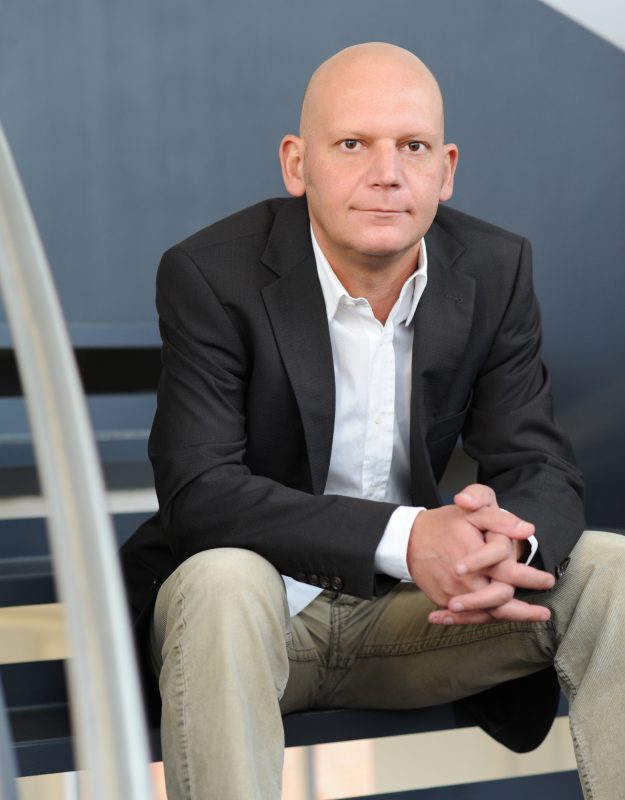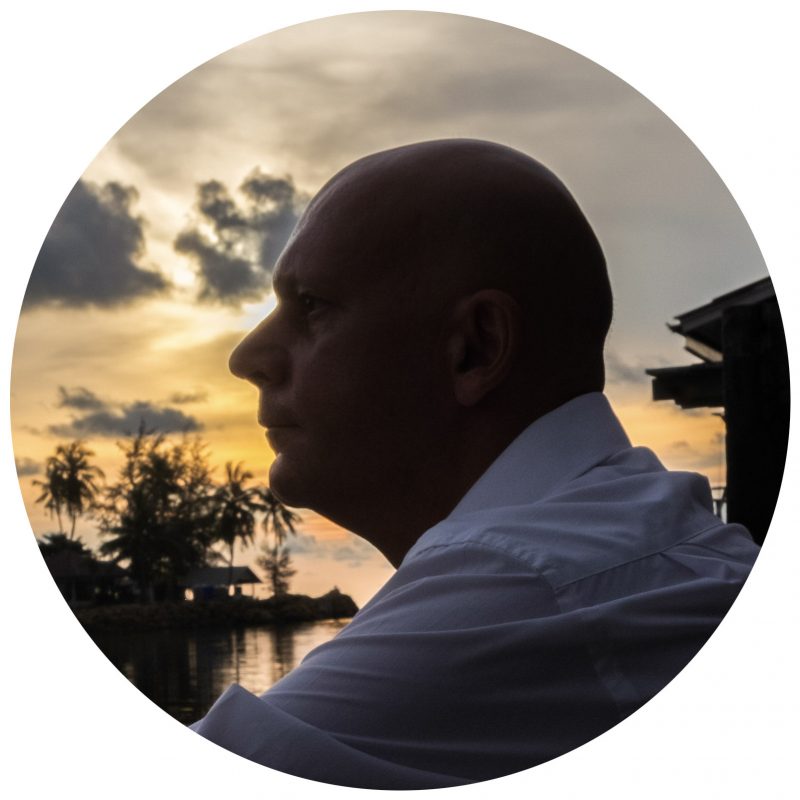
Average Rating
Story
“Only eat as much as you can carry with your hands.” – Miss Piggy, The Muppet Show.
Hi Robert, today we would like you to give our community a glimpse into your life as a digital nomad working as a marketing and advertising expert with over 25 years of experience.
Happy to have you here.
Maybe at first, can you give us a short introduction about you?
Robert: My name is Rob. I was born in Namibia, Africa, grew up and went to school in Germany, the U.S.A. and South Africa, studied a while (English Literature and History) in Germany, lived and worked in Scotland and Portugal, traveled many parts of the world since I can think of – bilingual /German/English.
Since 2016 I’m traveling and exploring the world full time while working remote in various occupations – with only two backpacks and two laptops. I am getting divorced right now, have no kids and no pets (unfortunately). I consider myself as being open-minded, polyglot and curious.
For the next maybe five years I will be still travelling at least half of the year with a home base either in SEA or Africa for the rest of the year. And then … who knows …? »Plans are made to be changed«
What have you done before you become an expert?
Robert: I have worked in really a lot of different jobs – whether it was to fund me to go to school or to go to university. Or just to try something out and make my living. Just to name a few: working on construction sites (my fathers original occupation), baggage dealer at an airport, postal service at a main train station, bartender, waiter, driver, dramatic advisor to a figure theater, actor, music concert organizer, and many, many more.

How did you become a marketing expert and what is your expertise?
Robert: My last job while going to university was working as a student assistant at the F.A.Z., the Frankfurter Allgemeine Zeitung, one of Germany’s most renowned newspaper in the marketing department. There I was the helping hand to the editor in chief and for three years we published the student’s edition. It was there where I came in contact to writing and the advertising business. The marketing director then convinced me to quit university and to start directly as a marketing consultant full time for him and his newspaper. The following year working as that I got more and more in touch with advertising and writing.
So, then I decided to give it a try to start a career as a copywriter. I did that at OgilvyOne, Frankfurt, at that time the world’s leading direct marketing advertising agency of the world (the Frankfurt branch). There I had two mentors, one of which is considered as the world’s most creative advertisers (based on the number of won awards and budgets and clients). He took me under his wings and taught me a lot, really a lot. Most of all he taught me to think big and to pursue my way – what until today I still do. From there for the next years I worked for most of Germany’s top agencies – whether full time employed or as a freelancer (BBDO, McCann, TBWA, JvM, Springer&Jacoby and so on).
And I climbed up the career ladder – handling multi-million budgets like BMW, Deutsche Bank, Amex, Lufthansa and so on, sometimes directing and leading teams with up to 30 art directors and copywriters. After some years then as a freelancer I made my passion to my main expertise – from creative director to creative planner. I worked as the Director Creative Development (a combination of strategic and creative planning) for the third biggest advertising group in Germany, Switzerland and Austria. But after some years, foreign countries and traveling the world called me again. For different reasons …
To get even deeper: What makes you unique as a professional?
Robert: One of the reasons why I left Germany and a high paid job was that I just didn’t like to work anymore in an industry full of people that live in a bubble. They live in a secluded ivory tower with absolutely no contact to the real world. While they were having fancy parties to celebrate their out-of-the-world ideas and campaigns, I always liked to rather go to concerts in squatted houses, hitchhiking through Europe, talking to real people. These experiences, combined with my personal history, my intercultural competences, and my innate curiosity made me stand out.
When it came to developing strategies for B2B or B2C sales campaigns I was (and still am) one of only a handful of experts that had and have their feet on the ground and converting insights into sales driven campaigns. My personal goal is not to win another award (I have enough and don’t need to prove it to me this way), it is to succeed in my job by delivering what clients need – and not what they want. When clients work with me, first they are a bit confused because I ask a lot of questions – which is part of my job to create a winning brief on which I then work on. And then get results they would never had thought about. Or to put with the words of David Ogilvy: »It’s not creative unless it sells.«

Sounds awesome. So, why do you like to work in the field of advertising and what inspires you?
Robert: Well, that’s easy and hard at the same time to say … Someone once said, that if you make your passion your occupation, you will never have to work again. True. If there wouldn’t be something like creative planning I still would be doing that, maybe under a different name. I just love it. To use my innate curiosity and creativity, to think and to imagine. To combine all that. But most I love it to see that these strategies in the end work and pay out.
My inspirations for that is the real life around me. Some of my most efficient campaigns were based on insights that I gathered in daily life, not in focus groups or so. So, just by living and traveling and speaking to people, always having my eyes open and asking questions, I fuel up my personal think tank. That inspires me and keeps me going.
With your background, what else are you passionate about outside of work?
Robert: Learning and enjoying. Which is, sometimes, the same thing. May it be cooking, traveling, sports, music, research, reading all kinds of things, movies, documentaries – whatever.
How do you motivate yourself in weak moments? Do you have a personal mantra that helps you to become the best version of yourself?
Robert:
A) A job is a job is a job. And has to be done if you want food on the table. No excuses.
B) Always keep walking.
C) It’s not only learning by doing, it’s also learning by burning.
Let’s learn a bit about your work. What type of projects have you worked on?
Robert: B2B, B2C, direct marketing, classic advertising, online and social marketing, CRM programs, TV, radio, billboards, mailings, newsletters, events, roadshows, exhibitions, etc.
I have worked for almost every industry sector there is – except weapons and armory, human trafficking, child labor, politics, prostitution and such things. Sales driven campaigns, Image campaigns, charity, PR, human resources, etc. – All of this in various combinations – In more than 25 years there were a lot of projects, long term and one-shots.
What is the project you are most proud of?
Hmmm … An invitation mailing to a special trade fair for an IT-company maybe? The client wanted to promote their new IT-solution. But that solution was at that point not finished. So, we had neither a name of that service solution, nor what it was really capable of, no specifications, no specified target audience, which problems it can solve, what it cost – nothing! The brief was only: »Invite people to our fair booth!«. No information at all. So I took all the odds, all the obstacles, all that, and turned it positive. I sent an direct mail – a black book with empty pages, only the first pages were printed – a reminiscence to »A hitchhikers guide to the galaxy« by Douglas Adams, two pages of the original book. In this book, long story short, the answer to all questions is: »42«. This is in Germany a quite common joke, especially among IT people.
So, the main message of the mailing was »There is an answer to all your questions concerning IT – but it is not 42!«. The average response to such trade fair invitations (free entrance ticket and appointment) was below 2%. We made with that an astounding 35% response. With that unusual mailing we stood out. The competitors were all doing the same – praising their solutions and bribing their potentials to visit them at the fair (raffles, free gifts, even laptops and so). Our recipients only had the chance to get a free copy of that book we were quoting. Major success for our client. And that with a none existing product/service with no name or specs to promote. A small, absolutely low budget action, we even then made it to the shortlist of the Cannes Lions Direct Awards. Even though (or maybe because oft that) it was an almost impossible task, yeah, I’m proud of it.

What does your dream project look like?
Robert: A project where I have the Carte Blanche: the trust, confidence and belief in what I’m doing. No notorious nay-sayers, concerners. By a client who believes in that one sometimes has to make a detour or go a different way.
Did you have any step-backs in your career? How did you overcome them?
Robert: Uuuuh, a lot … Almost all of them were when I decided not to play the game of careers anymore. When I stepped out and went my way. Many of my ex-colleagues are now CCO, CEO or whatever chief. While they sold their souls and beliefs to go on making careers, in their eyes I’m a looser. But a happy one. One that can look every morning in the mirror and smile. And especially that kept me going and overcome self-doubts.
What tools do you use regularly?
Robert: Hardware: an old MacBook Pro (2014) and an old PC-laptop (2015).
Software: Adobe Creative Suite and MS Office. That’s all I need. Yeah, and of course some VPN, Skype, Slack, whatever a client wants me to use, and some useful little helper – nothing fancy.
Most important tool (no joke!): A pen and a little notebook I can take notes. Yes, old school, but that works fine with me. Sitting at a mountain top, at a beach or in a bar or cafe and writing down notes.
What are your career goals?
Robert: Oh, well … Career is actually not a thing for me anymore – in a traditional way. I’m not striving to get a new company car every year, a bigger office, more employees under my command or so. No new fancy title to shine with. No. But when asked what my personal goals are that go with my »career« I would say: to maintain my current way of life. To have some clients, some nice and good projects, earn some money. May it be creative planning creative direction, copy writing, translations or travel journalism (which I do on the side) – and stay healthy by doing that. Too many years I sacrificed my health to jobs, working up to 100 hours a week, and that for months. That’s my overall goal.

What was the funniest / unusual moment in your career?
Robert: Maybe that pitch-presentation that I had to do after four weeks of hard work. I was standing in front of a big audience – big company, everybody was there: CEO, CMO, CSO and so on. The screen from the beamer was behind me – I knew the presentation word by word. So, I stood there and began talking and explaining the strategy, some 100 charts or so. I clicked to every next chart with my remote control. And I saw the people smiling, I got them. I felt very positive and kept on presenting like hell. At the end I asked for any questions and was ready to discuss. There was only one question: »Where was that, Africa?«.
I was confused and turned around to have a look at the wall where the beamer was showing – pictures of my last Africa holiday … I had forgotten to turn off the automatic screensaver – and that was some kind of best of my holiday. So, while the presentation was on, I was talking about strategies and creative ideas and implementation and cost and so, behind me the audience was looking at pictures of me running away from crocodiles, playing with lion cubs, walking through the desert, camping, feeding elephants and so on. I clicked through the screensaver instead the presentation … As I realized that I was so embarrassed like seldom in my life before – there were also some, let’s say: private pictures in that album as well.
But it turned out good … The client said, that they never have had such an entertaining presentation before. I won that pitch in the end. And from that point on the client requested at every presentation to show some picture first.
Which three steps / ways do you think lead to success?
Robert: Above all – Be reasonable in your self-confidence. It is absolutely good to believe in yourself. But know where the edge is where it comes to be arrogant.
Say no to nay-sayers. Most of the times they say no to you just because they lack of self-confidence themselves – or are just jealous that you risk something, and they are scared to do so.
And then – Be honest. To yourself as well as to others. Moral and integrity leads you further than back-bending, lying and cheating. The road maybe harder to take, but it’s worth it.
What is your favorite motto?
Robert: »Only eat as much as you can carry with your hands.« – Miss Piggy, The Muppet Show.
Thanks so much for your time, Robert. We wish you good luck with your upcoming design projects, but before I’ll let you be creative again:
Do you have any tips / recommendations for the next generation of remote-workers?
Robert: Specialize. Specialize. Specialize. There will be tons of of opportunities to do that or this as well. But that will put you back if you try to be a jack of all trades in the beginning. You will get lost – and clients/customers won’t trust you if say that you are a pro in eight different jobs. Be persistent in what you do – and do that good. Find a niche and become an expert. Then you will always have time and capacities of doing some side jobs you like.
Learn more about Robert on his ExpertMap Profile
? Share your thoughts and questions in the comment box below ?






